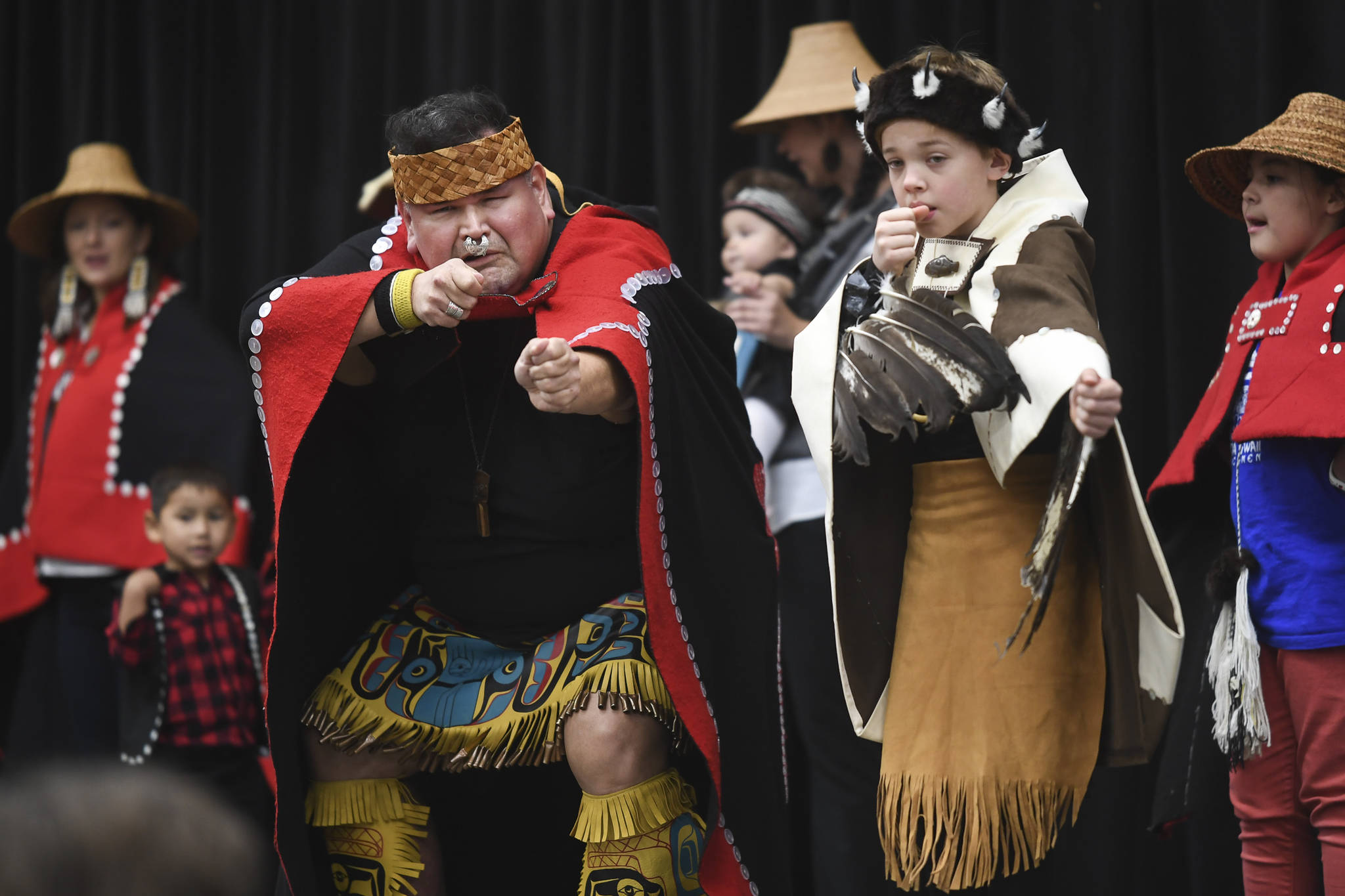Progress was the focus of a pair of Indigenous Peoples Day speeches.
Central Council of Tlingit and Haida Indian Tribes of Alaska President Richard Chalyee Éesh Peterson and 2nd Vice President Jackie Pata, president and CEO for Tlingit & Haida Regional Housing Authority, envisioned continued resurgence of indigenous cultures in Alaska and the rest of the U.S.
Their speeches were part of a celebration of the third Indigenous Peoples Day since former Gov. Bill Walker signed a bill into law that designated the second Monday in October as Indigenous Peoples Day instead of Columbus Day.
“It’s a great day to be indigenous,” Peterson said. “We can proudly stand up and be recognized.”
Both he and Pata praised the growing number of cities and states that have reassessed Christopher Columbus’ actions upon arriving in the New World and decided his actions are undeserving of celebration. Other places that celebrate Indigenous Peoples day include Washington, D.C., Louisiana, Vermont, Michigan, Maine, New Mexico and Wisconsin, South Dakota, Minnesota and Nevada.
“His actions weren’t really worthy of being honored for half a millennium after his death,” Pata said. “Columbus killed and tortured many indigenous people. His precedent set the stage for centuries of oppression to follow.”
Instead, Pata said it was appropriate to celebrate resilient people with a resurgent culture who overcame centuries of systematic disadvantages.
“We are still here, and we are thriving,” Pata said.
Some of Native American and Alaska Native people she highlighted were Jim Thorpe, one of the 20th century’s greatest athletes; Ira Hayes, a Marine who was part of the iconic Iwo Jima flag-raising; Howard Rock, editor for the Tundra Times; Ben Nighthorse Campbell, a former U.S. senator and representative; and Elizabeth Peratrovich, an Alaskan civil rights icon.
“It is just the beginning to be able to honor the contributions that indigenous people made in the past and will continue to make in the future and to give them the honor and the respect they deserve,” Pata said. “In doing so, we will show America we need to come to terms with our complex and sometimes sordid history, but we can do it together in a way that is positive and progressive.”
Peterson spoke about honoring the people who keep Alaska Native languages and arts alive, and the importance of Native names.
“These things are important,” Peterson said. “Knowing who we are, where we are matters.”
He quoted the late Walter Soboleff, a Tlingit scholar, leader and Presbyterian minister, who said, “when our children know who they are, they don’t hurt themselves.”
Peterson said as president of Tlingit & Haida he often talks with Alaska Native people who grow up in the Lower 48 with little knowledge of their culture. He said it’s important to continue to produce Native art, speak Native languages and continue to give people Native names.
[Bill could change the way Southeast’s marijuana businesses work]
“We should all know who we are,” Peterson said.
He said that may mean giving a name at a nontraditional time. Peterson said for example, he was given his name at birth rather than a ku’eex’, or potlatch.
“I’ve never had to live life not knowing who I am,” Peterson said. “We have this opportunity now. We’re seeing our culture have life breathed back into it. More language learners. Those are positive things. Let’s take that knowledge that’s being returned to us, and let’s make sure when we hold each other up, we give those names, so we all know who we are.”
• Contact reporter Ben Hohenstatt at (907)523-2243 or bhohenstatt@juneauempire.com. Follow him on Twitter at @BenHohenstatt.


